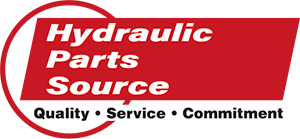The Effects of Summer Heat on a Hydraulic Fluid
As summer heats up large facilities, companies that use fluid power systems should take steps to ensure their fluid power equipment is equipped to cope with rising temperatures.
While cold weather is to blame for some fluid power system failures, warm weather has its own drawbacks.
By understanding how heat effects a fluid power system, and preparing your fluid power systems for the summer season, you reduce risks to your hydraulic equipment that can result in costly shutdowns and increased maintenance demand. In this article, you’ll find information and preparation advice to help you understand and mitigate the effects of heat on hydraulic fluid.It’s Important to Understand Viscosity
Be sure to read and understand your oil’s viscosity chart to understand how the oil viscosity changes at different operating temperatures.The viscosity of petroleum-based hydraulic oil lessens as temperature increases. This lowers its ability to reduce heat and part-wearing friction.
Low oil viscosity causes loss of lubricating film strength. If the load on the hydraulic system remains the same, but higher operating temperatures reduce oil viscosity below the needs of your equipment, the chances of increased friction, abrasion, and adhesive wear rise.
Keep it Cool by Controlling Temperature
One way to help your hydraulic fluid system cope with warm weather is to control your oil’s operating temperature. This means that you must have adequate cooling processes in place before warmer weather arrives, rather than waiting for the onset of the warm season.One way to keep temperatures in a fluid power system from creeping higher is to ensure that you are using the right oil in the system.
Few hydraulic systems have an overall efficiency greater than 85-90%, with lower-efficiency systems generating more heat. So, any hydraulic systems with low efficiency continuously generate heat and may require heat exchangers.
If you are using heat exchangers with your systems, be sure that they are not too small for the job. This can worsen your heat problem when your machines experience higher ambient temperatures.Humidity: A Sticky Problem
Depending on your location, high temperatures can also bring high humidity, resulting in water contaminating your hydraulic system.Water in hydraulic oil can cause surface corrosion and increased wear on a system’s metal parts. Water may also reduce oil viscosity, and contribute to systems generated excess heat and the wear and tear that accompany that condition.
Before the humid weather sets in, perform oil analyses on all systems to check water content. Replace hydraulic reservoir air breathers with desiccant breathers. This will help evaporate or absorb water that has contaminated a hydraulic system.
Cool Heads Prevail When the Heat is On
Warm weather presents challenges for fluid power systems, just as winter does. Carefully managing oil temperature and viscosity as well as paying attention to whether water contamination is caused by elevated humidity are both important to keeping a system running smoothly.It is also important to pay attention to how hot a system is running, as extreme temperatures break down lubricating oil and can damage metal parts.
These considerations are key to avoiding the cost of replacing parts and shutting down systems to make repairs.
As is the case with many preventable situations, an ounce of prevention – or in this case, preparation – is worth a pound of cure!

